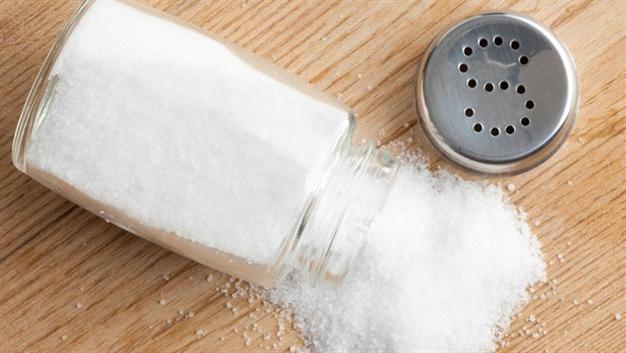Turkish restaurants mull banning salt
ISTANBUL – Anadolu Agency
 As Turkey tries to lower daily salt consumption, thousands of restaurants could be preparing to remove the much-maligned condiment from their tables.
As Turkey tries to lower daily salt consumption, thousands of restaurants could be preparing to remove the much-maligned condiment from their tables. Istanbul-based All Restaurants and Suppliers’ Association is planning to discuss this issue during an executive meeting at the end of this month, an industry source said on condition of anonymity.
“The association plans to take this step,” the source claimed. The association, representing 230 firms across Turkey, is also planning to come together with the Health Ministry.
Turks on average consume a whopping 18 grams of salt per day. The World Health Organization (WHO) recommends a five-gram daily maximum.
In Turkey, this rate could increase to 25 grams in southeastern parts of the country where kebab culture is dominant, according to Timur Erk, chairman of the Istanbul-based Kidney Foundation.
“This is too dangerous,” he said. Despite the current vogue for criticizing salt intake, the chemical compound of sodium and chloride is an essential nutrient required for blood, sweat, digestive juices and efficient nerve transmission, according to the U.S.-based Salt Institute.
People and livestock need to consume salt daily. Also, many companies use salt to preserve foods or to extend shelf-life of products, especially ready-made foods.
Salt also was a cause of one of the most well-known nonviolent protests initiated by Indian independence leader Mohandas Gandhi. The Salt March of 1930 eventually paved the way for India’s independence from the British Empire.
Despite the wide range of use and implications of salt, its proportional intake is vital for human health.
“It is a chemical after all. If you consume [too much], it is detrimental to your health,” says Erk.
The WHO warns that excess sodium is linked to adverse health outcomes, including increased blood pressure.
In a bid to decrease sodium intake, the Turkish Health Ministry had announced a five-year roadmap in November 2011. “Excessive salt consumption is unhealthy but changeable. That excess leads chronic illness,” the roadmap document stated.
“The daily intake of salt was down by three grams. Turkish people [now] consume 15 grams of salt [on average],” the Food, Agriculture and Livestock Ministry said.
Sezer further recommended that there could be a special sign on products with a lower salt ratio, adding that there could also be training programs to decrease salt consumption at home.
















